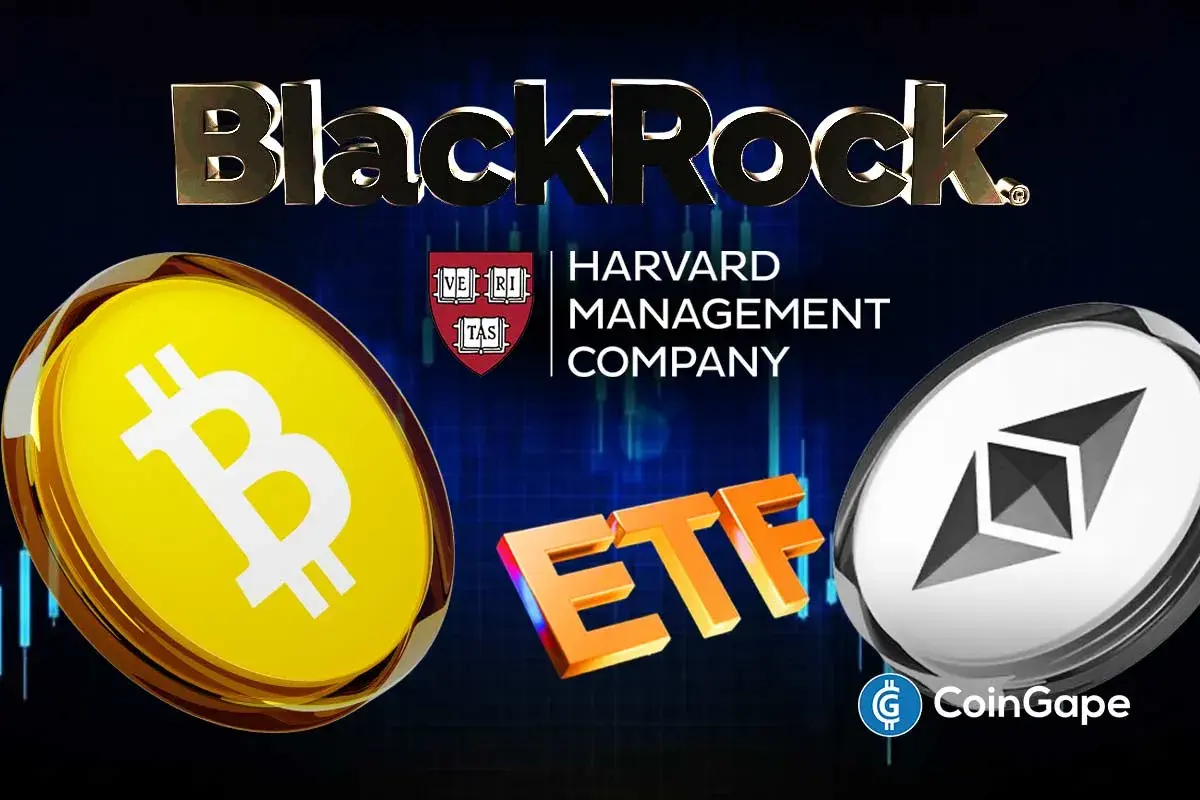BNY Mellon Gets SEC Green Light for Institutional Crypto Custody, Breaking Barriers

Highlights
- The SEC has granted BNY Mellon an exemption from SAB 121, allowing the bank to provide institutional crypto custody services.
- This move is seen as a significant step towards greater institutional adoption of cryptocurrencies.
- However, the SEC's decision has drawn criticism from some, who argue that it creates a double standard and unfairly favors large institutions.
It was testified to the fact that in a major development for banks entering the institutional crypto custody space, the largest custodian bank in the US, BNY Mellon, reportedly got an exemption from adhering to the SEC’s SAB 121 accounting guidelines specifically for its institutional crypto custody operations.
During a federal update on Monday, Chris Land, counsel for US Senator Cynthia Lummis (R-WY), announced that the SEC—and perhaps other regulatory agencies—has given the green light to BNY Mellon to provide institutional custody for digital assets.
SEC Eases Rules, Banks Can Now Offer Institutional Crypto Custody
According to Land:
“BNY is looking to get more involved in the crypto custody business. They had some problems with Staff Accounting Bulletin (SAB) 121, and the SEC has apparently given them some kind of variance from SAB 121 to move forward.”
In a surprise revelation, SEC Chief Accountant Paul Munter said during a speech that the agency has granted conditional exemptions to SAB 121. He was quoted as saying that such exemptions were given to a bank and various brokerage firms among other entities that were using blockchain to track and move conventional financial assets, though he did not disclose specific names.
SAB 121 requires the crypto custodial entities to recognize the assets in their balance sheet and concurrently recognize a liability for the fair value of the crypto. This has been considered by many to be overly burdensome for the crypto and banking industries, and much criticized.
Munter said the SEC had concluded SAB 121 did not apply for banks, brokerage firms, and other institutions using blockchain in some instances. For the bank, the exemption was given under conditions, including working with a state regulator so that in case of bankruptcy, custodies crypto assets would revert to the customers. The bank was also only allowed to undertake activities relating to institutional custody, with adequate controls to manage the risk.
Be it as it may, regarding SAB121, US SEC v Coinbase lawsuit recently went through a pause as the government agency requested the court for an extension of time to complete discovery. The agency seeks to delay the deadline to complete fact discovery in the case to a post-election date in February.
BNY Mellon Gets Crypto Custody Green Light, Others to Follow
BNY Mellon is headquartered in New York and thus falls under the supervision of the New York Department of Financial Services and, on the federal level, the Federal Reserve; it was allegedly a party to an exemption from the Securities and Exchange Commission’s SAB 121 rules, according to testimony provided by Chris Land, general counsel to U.S. Senator Cynthia Lummis:. Land said the Federal Reserve would have been involved in approving BNY’s foray into the digital asset custody business because the Fed regulates BNY Mellon’s bank holding company. It is not clear, however, whether a formal non-objection letter from the Fed was required since two supervisory letters from 2022 and 2023, SR 22-6 and SR 23-7 do not make it clear prior approval is needed to engage in crypto custody.
Interestingly, the institutional interest in Bitcoin continued to grow in Q2 of this year, further highlighted by market data indicating large players hold more BTC. Companies like Mercado Libre and BNY Mellon, among other popular institutions, have recently disclosed their exposure to Bitcoin in the recently released 13F filings, further fueling the optimism in the market.
There remains some semblance of a rule that suggests state chartered banks, like BNY, ought to follow similar rules of national banks, including its need to seek a nonobjection letter. Fed policy statement 9 13 * says state banks must abide by the rules applicable to national banks. Office of Comptroller of the Currency requires such a letter for national banks before engaging in crypto custody activity.
Chair Cyrus Western of Wyoming’s Select Committee on Blockchain asked if BNY would be required to obtain a BitLicense to deal in the digital assets, and Land replied that the latter could claim federal banking laws pre-empt such a license under state law.
Although BNY, the SEC, and the Federal Reserve all declined to comment on the specifics, there is speculation that BNY is, in fact, the bank exempted from SAB 121, and Galaxy Digital CEO Michael Novogratz said this could open the door to more traditional banks getting into crypto. During an appearance on a recent Yahoo Finance podcast, BNY CEO Robin Vince weighed in on how the bank is preparing for a future where it will be involved in the burgeoning digital asset space.
Slamming SEC’s ‘Double Standards’ in Crypto Custody Case
- Bitcoin Shows Greater Weakness Than Post-LUNA Crash; Is a Crash Below $60K Next?
- XRP Tops BTC, ETH in Institutional Flows As Standard Chartered Lowers 2026 Forecasts
- Bitcoin vs. Gold: Expert Predicts BTC’s Underperformance as Options Traders Price in $20K Gold Target
- CLARITY Act: White House to Hold Another Meeting as Crypto and Banks Stall on Stablecoin Yield Deal
- Bitcoin as ‘Neutral Global Collateral’? Expert Reveals How BTC Price Could Reach $50M
- Dogecoin, Shiba Inu, Pepe Coin Price Predictions As BTC Crashes Below $68k
- Ethereum Price Outlook as Harvard Shifts Focus from Bitcoin to ETH ETF
- HOOD and COIN Stock Price Forecast as Expert Predicts Bitcoin Price Crash to $10k
- XRP Price Prediction Ahead of Supreme Court Trump Tariff Ruling
- Crypto Price Prediction For This Week: Dogecoin, Solana and Cardano
- Bitcoin Price Prediction: How Could Brazil’s Strategic Bitcoin Reserve Proposal Impact BTC?

















